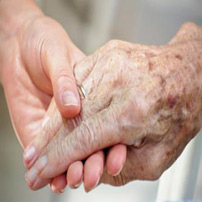Antipsychotic Drugs Overprescribed in Nursing Homes
March 27, 2018 Nursing home residents tend to be elderly patients who can no longer be taken care of at home. Oftentimes, they suffer from dementia, Alzheimer’s disease, and other health conditions that can cause them to become confused, agitated, and even physically aggressive. To suppress these behaviors, they are often given antipsychotic medications, even if they do not have an approved diagnosis that would warrant the use of these potent drugs. Unfortunately, this and other instances of nursing home negligence and abuse happen all too often across the country.
Nursing home residents tend to be elderly patients who can no longer be taken care of at home. Oftentimes, they suffer from dementia, Alzheimer’s disease, and other health conditions that can cause them to become confused, agitated, and even physically aggressive. To suppress these behaviors, they are often given antipsychotic medications, even if they do not have an approved diagnosis that would warrant the use of these potent drugs. Unfortunately, this and other instances of nursing home negligence and abuse happen all too often across the country.
The Human Rights Watch recently released a 157-page report that indicates that over 179,000 nursing home residents are prescribed antipsychotic medications each week, even though they do not suffer from schizophrenia, or any other conditions that would warrant an antipsychotic prescription. After visiting 109 facilities in six states between October 2016 and March 2017, including interviews with residents, family members, nurses, social workers, pharmacists, and others, researchers began to understand the magnitude of the problem.
Antipsychotic Drugs Can Be Dangerous for Elderly Patients
According to the Food and Drug Administration (FDA), antipsychotic drugs are not a safe or effective way to treat dementia symptoms, including dementia-related psychosis. In elderly patients, these drugs can cause severe muscular rigidity or jerking movements, low blood pressure, high blood sugar, blood clots, and can even double their risk of death. Oftentimes, family members were not informed about the potentially dangerous side effects of these drugs, and if they were, they were hesitant to question the staff because they did not want their loved one evicted from the facility.
The report points out that there are effective ways to manage the symptoms of dementia that do not involve prescription medication. Regular exercise, music or pet therapy, creating predictable routines, regular visits with friends and family members are all ways to help improve symptoms and keep the patient engaged and alert. This will be extremely important to keep in mind as today’s population ages. According to the US Census Bureau, approximately 50 million Americans are over the age of 65, a number which is expected to double by the year 2060. Five million of today’s population suffer from Alzheimer’s, and by 2050, that number may be as high as 16 million.
To address the problem of overprescribing antipsychotic medications, the Centers for Medicare & Medicaid Services established the National Partnership to Improve Dementia Care in Nursing Homes, which helped reduce the use of these drugs by 35 percent. Other facilities have stopped using the medications after studying the needs of the residents and realizing that there are better, more effective options. More needs to be done, however, to enact widespread change.
Baltimore Medical Malpractice Lawyers at LeViness, Tolzman & Hamilton Advocate for Victims of Medical Negligence
If you have a loved one who is a resident in a nursing home and they have been prescribed an antipsychotic drug for the symptoms of dementia, you are urged to contact the Baltimore medical malpractice lawyers at LeViness, Tolzman & Hamilton as soon as possible. We are committed to protecting the rights of your loved one and ensuring that the medical professional responsible for their care is properly treating and caring for your loved one. Our dedicated team will fihgt to secure the maximum financial compensation they deserve. To schedule a free consultation, call us today at 800-547-4LAW (4529) or contact us online.
Our offices are located in Baltimore, Columbia, Glen Burnie, and Towson, allowing us to represent medical malpractice victims in Maryland, including those in Anne Arundel County, Baltimore County, Carroll County, Harford County, Howard County, Montgomery County, Maryland’s Western Counties, Prince George’s County, Queen Anne’s County, Southern Maryland, and the Eastern Shore, as well as the communities of Catonsville, Essex, Halethorpe, Middle River, Rosedale, Gwynn Oak, Brooklandville, Dundalk, Pikesville, Nottingham, Windsor Mill, Lutherville, Timonium, Sparrows Point, Ridgewood, and Elkridge.






